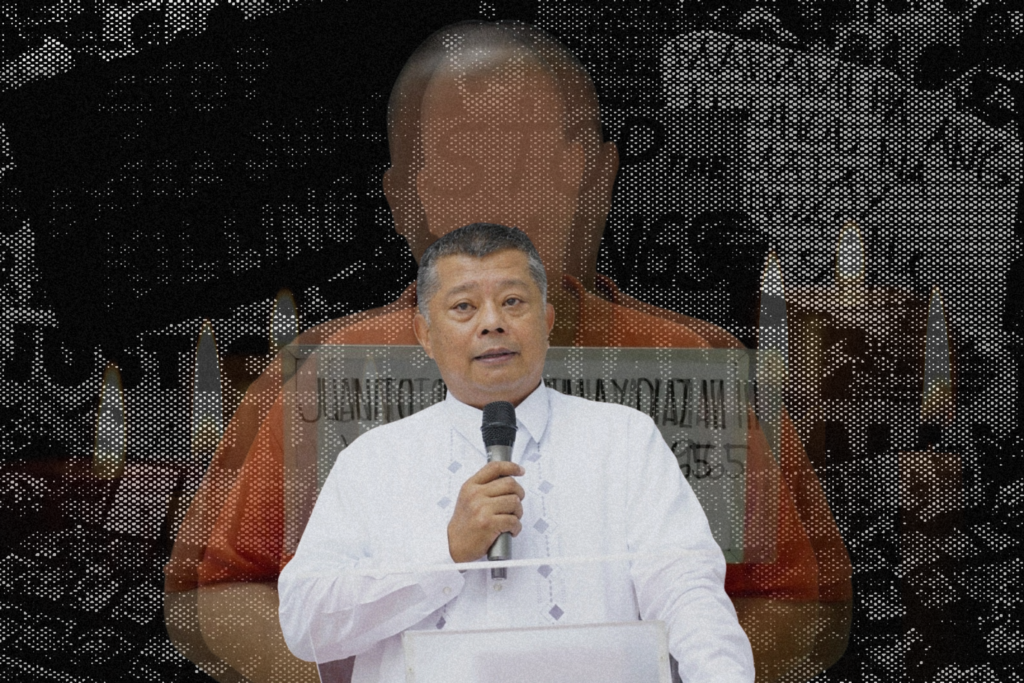Special Treatment or Considerate Handling: PDEA Double Standard Observed in Remulla Son’s Case
THE MEDIA reported the arrest last October 11 of a certain Juanito Jose Diaz Remulla III, who turned to be the son of Justice Secretary Jesus Crispin “Boying” Remulla. Through a “controlled delivery” operation, the Philippine Drug Enforcement Agency (PDEA) arrested the secretary’s son after he received a parcel containing PHP 1.3-million worth of high-grade marijuana.
Despite the repeated assurance by Sec. Remulla that he would not meddle in the investigation, media coverage reported concerns from different quarters that his son has received special treatment from the authorities.
Blurred Mugshots, Two-Day Delay
Initial reports from primetime newscasts 24 Oras, TV Patrol, ANC’s The World Tonight, Frontline Pilipinas, and News Night used a blurred mugshot of Remulla’s son. Only a few media, including the Philippine Daily Inquirer immediately reported that it was PDEA that blurred the photo and released it for media use. Later, TV Patrol and The World Tonight sourced and used an uncensored photograph of Remulla’s son.
In Inquirer.net’s report last October 18, Rep. France Castro, House Minority Deputy Leader, called attention to the mug shots supplied by PDEA in a statement, asking the agency why the face of Remulla’s son was covered. Castro said this blurring of the faces of a suspect contrasted with the usual practice of law enforcement of presenting suspects in news briefings with their faces uncovered.
PDEA Director-General Wilkins Villanueva addressed this in a statement reported by the Manila Bulletin on October 20. Villanueva mentioned that PDEA is following a set of protocols that was implemented in March this year. According to him, the new guidelines of not publicizing suspects are aligned with the provisions of Republic Act No. 10173, also known as the Data Privacy Act of 2012.
In contrast, PDEA Spokesperson Derrick Carreon told GMA News Online last October 17 that the policy respecting the presumption of innocence of suspects is already an “existing media protocol” since 2021.
CMFR notes that in 2018, PDEA publicized a “narcolist” containing the names of barangay officials, which several media carried without verification. PDEA’s claim that they revised their guidelines is a welcome gesture. However, reports did not follow up with either Villanueva or Carreon what specific document contained the policy. It remains unclear whether they are referring to the same document or not.
CMFR checked PDEA’s website for the relevant memorandum circular or order, but the latest document in the section containing these is dated 2020.
Meanwhile, Castro and Albay Rep. Edcel Lagman separately pointed to the two-day delay in publicizing Remulla III’s arrest. Castro raised the possibility of what might have transpired in those two days when the information was withheld from the media.
Rappler’s October 19 report cited Carreon’s reasoning that the delay was caused by the thorough verification of PDEA before going public, since the person involved is related to the Justice Secretary.
Mandatory Drug Testing
Castro also pointed out that PDEA’s agreement that Remulla’s son forgo mandatory drug testing also reeked of special treatment. Castro said a drug test must be done within 24 hours after the arrest of a suspect in a drug case like that of Remulla’s son.
Carreon then clarified that Remulla III refused to be tested upon the advice of his lawyer, not of PDEA. Philippine Daily Inquirer reported that PDEA would not insist that Remulla’s son undergo a mandatory drug test, as his lawyer had “immediately intervened.”
Article III, Section 38 of Republic Act No.9165, more commonly known as the Comprehensive Dangerous Drugs Act of 2002 says that “Any person apprehended or arrested for violating the provisions of this Act shall be subjected to screening laboratory examination or test within twenty-four (24) hours”, making the drug test for suspects a requirement by the law.
In a 2019 column lawyer Persida Acosta published in The Manila Times, she said that drug testing is also immediately required if the person apprehended is found violating Article II of RA 9165, which covers the importation of illegal drugs. So far, Remulla III has only been charged for possession by Las Piñas prosecutors, who recommended no bail. The same prosecutors decided to defer any importation charge to Pasay prosecutors, as the act of importation itself happened in their jurisdiction. As of this writing, Pasay prosecutors have not yet charged Remulla III.
This case will surely challenge the credibility of the justice system, as the Justice secretary himself has to contend with a crime allegedly committed by his son. The reported replacement of Villanueva by a policeman with Ilocos ties also warrants sufficient media follow-up. Journalists must keep close watch on the Marcos administration’s efforts to fight the drug problem, and report whether justice will continue to be selective under his watch.

Leave a Reply